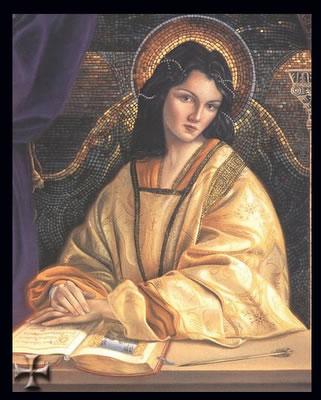 |
| Poggio's notes on monument [link] |
His name was Gian Francesco Poggio (later called "Bracciolini," and he was born in Tuscany on 11 February, 1380, but grew up in Florence where his father took him to be educated. It was soon clear that he had a great talent: his penmanship. In an age when all documents were created by hand, penmanship was prized. He was put in school to become a notary.
Notaries were authorized to oversee certain legal documents and transactions. At 21 he was a member of the Notaries Guild in Florence. Two years later, he was working for a cardinal, and a few months after that, for the Vatican itself. With his penmanship skills and knowledge of proper document organization and preparation, he quickly moved up through all the ranks of official Vatican scriptors, working under four popes.
Then came 1414 and the Council of Constance that got rid of all three warring popes, beginning a two-year gap in the need for secretaries who produced official documents. Poggio decided to travel. He visited the German spa at Baden, abbeys in Switzerland and Swabia, St. Gall and many others. He brought to light sole copies of important works by classical authors that might have otherwise disintegrated without being copied.
At Gall he found unique documents by Cicero, Quintilian, Statius, Gaius Valerius Flaccus, and more. Cicero's complete Orations were recovered at Cluny. The only known copy of the encyclopedic De Rerum Natura ["On the Nature of Things"] by Lucretius was recovered from a German monastery (probably Fulda). One Harvard scholar credits Lucretius' 7400-line poem on the world with kickstarting the Renaissance.
He returned to his Vatican duties, being named Apostolicus Secretarius, the papal secretary, under the newly elected Pope Martin V. He traveled a great deal still, moving around when the pope did and on re-assignments (he spent five years in England, which he hated), looking for manuscripts that needed bringing into the light. He worked under several more popes until he finally retired to a villa that he had built with the money from the sale of a manuscript by Livy. In 1453,* he was offered the position of Chancellor of the Florentine Republic by Cosimo de Medici. He fulfilled his duties there until his death in 1459.
*Coincidentally, he retired from a career created by his excellent hand-writing of documents at the same time Gutenberg was perfecting movable type and ushering in an era of mass-produced books.





























